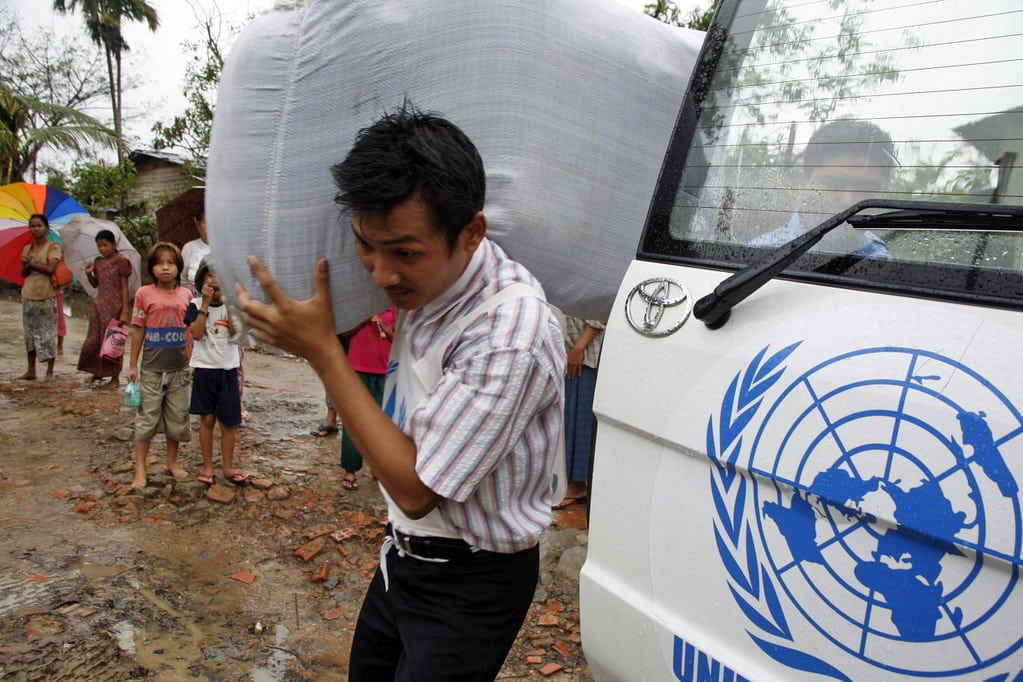

In November 2020, the UK Government slashed its spending on foreign aid from 0.7% of Gross National Income (GNI) to 0.5% of GNI. This represents a cut of approximately £4 billion, nearly 30 per cent of the budget.
This money is supposed to be spent on humanitarian aid and towards strategic goals, such as healthcare and education. A recent study has shown, however, that as much as a sixth of purported “aid” ends up in the tax havens!
Much of the impact of the cuts will fall on women and children. The Royal College of Paediatrics and Child Health said the evidence was “overwhelming” that aid helped children’s health and any reduction would have far-reaching consequences. Research has demonstrated that a 1 per cent increase in health aid reduces infant deaths by 2.6 per cent in sub-Saharan Africa.
The destructive impact of the cuts will also be felt by women. The charity Action Against Hunger has stated that as many as three million women and children could lose access to life-saving nutrition as a result of these cuts. Even former Tory minister Andrew Mitchell has said that these cuts could lead to a million girls not having access to education and 7.6 million fewer women and girls gaining access to contraception. Further impacts are likely to be felt in the areas of literacy, health and land development.
Marxists understand that Britain is an imperialist country, which benefits from the world system of trade by economically subjugating formally independent countries, semi-colonies. Considerable wealth is extracted from semi-colonies by imperialist centres, such as the UK. This is supported by the provision of both military aid and arms sales to repressive regimes. In 2019 alone, British manufacturers exported £11 billion worth of arms.
The economic consequences of the imperialist system generally take place without the need for direct military intervention, a last resort. This cloaks the true relationship, making it less visible and allowing imperialist countries to publicly present themselves with an air of moral superiority. Foreign Aid has historically been an important part of this masquerade.
However, the sums “donated” by way of foreign aid pale into insignificance when compared to the volumes of wealth extracted from semi-colonies by imperialist multinationals. Aid also comes with strings attached, structural adjustment programmes, which further the imperialist interests.
So foreign aid has never granted altruistically. There are three primary motivations:
Much of the money spent on foreign aid actually turns a profit for Britain. Such “aid” in reality simply deepens the poverty and ties of dependence which foreign aid purports to be tackling. Additionally there is the threat of IMF-imposed austerity, hanging like the sword of Damocles over the global south.
The massive spending necessitated by the pandemic has, however, caused the government to prioritise short-term financial considerations over the longer term benefits of foreign aid. Boris Johnson and Rishi Sunak aim to offset the increased spending by massive cuts in other areas; foreign aid is an easy target.
Nationalism and chauvinism are on the rise, as evidenced by the success of far right parties throughout Europe and the Brexit campaign. Traditional “conservative” parties, such as the Tories and the Republicans in the US, have taken on a nationalist-populist character, with a strong element of racism and white supremacy. Cutting foreign aid fits in with this ideological shift.
The unions too have been largely silent, leaving it charities and NGOs to denounce the cut. Equally, the Labour Party has been noticeably quiet. Although Keir Starmer criticised the move, he did so on the basis that the cuts would “hugely weaken us on the global stage”. Typically Sir Keir’s priority is not the suffering of the world’s poorest people, but rather the impact on Britain’s power and prestige.
Within the imperialist system, foreign aid always comes with strings attached and can be cut at a whim. The imperialist monopolies must be expropriated so that the value created within the semi-colonies becomes the property of the workers who produce it, rather than being stolen by domestic tyrants, foreign capitalists or siphoned into tax havens.
A socialist revolution would have as its immediate priority the redistribution of wealth from the imperialist centres to the semi-colonies. One of the first priorities of a socialist government in Britain would be to cancel the debts, end support for repressive regimes and provide long-term, interest-free development loans to exploited nations.
To organise for this perspective, socialists must foster class consciousness and solidarity within the working class. British workers’ interests are far closer to those of workers and poor farmers in foreign countries than to their own “national” capitalists. Nationalism has to be confronted and defeated. Only by uniting to expropriate the capitalists can we end imperialist exploitation.